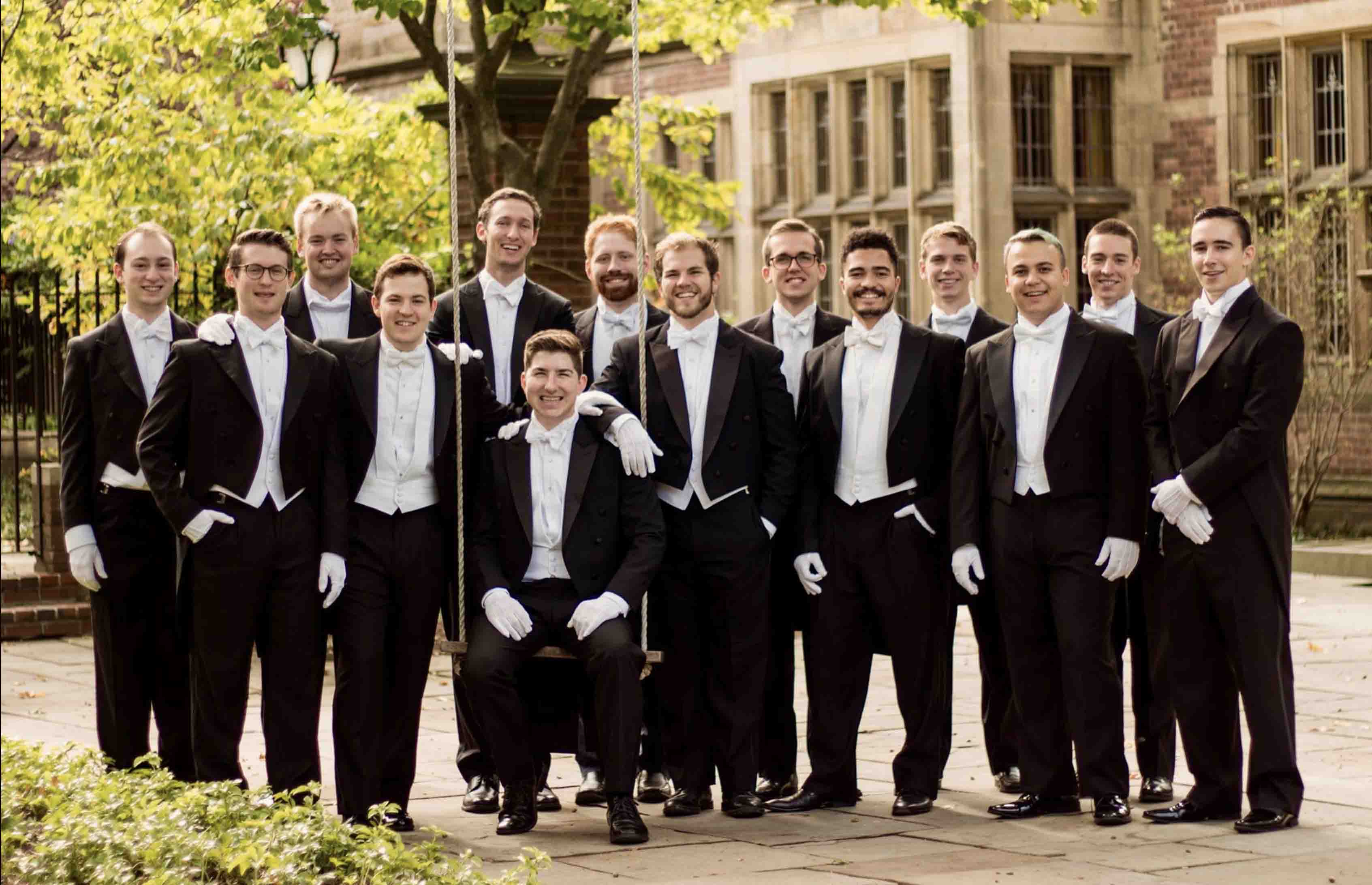
Courtesy of Kyle Picha Photography
A Thursday night petition urging the Yale Whiffenpoofs, a prestigious all-male a cappella group, to admit women to its next class of singers has garnered more than 135 student signatures as of Sunday night and is spurring conversations about inclusiveness in the a cappella and wider campus communities.
The petition grew out of a Facebook group created last week to encourage female students to audition for the Whiffenpoofs, which voted in November to remain single-gender. Claire Carroll ’18, a member of the Yale Glee Club, drafted the petition, which has attracted signatures from members of almost every musical group on campus, including the Glee Club and the Yale Symphony Orchestra.
The first set of auditions for the Whiffenpoofs was held Sunday night. One woman auditioned on Sunday, although the group expects more to do so in the coming days, said Solon Snider ’18, who serves as the musical director for the Whiffs.
“Everyone has different reasons why they do or don’t want the Whiffs to desegregate,” Carroll said. “I wanted a chance to sing with the Whiffs, so I signed up to audition. But the petition attempts to address a broader set of reasons why the Whiffs should consider us. In a lot of ways, they represent Yale to a global community, and I think it behooves them to reflect our campus community and the diversity of talent it offers.”
The petition, addressed to the Whiffenpoofs class of 2016–17, calls for “privileged institutions” like the Whiffenpoofs to “open their arms to singers on the basis of talent alone.”
However, support for the petition in the a cappella community is not unanimous, and some students have spoken out against it.
Zoya Afridi ’17, who serves as the co-business manager of Yale Whim ’n Rhythm, an all-female a cappella group on campus, spoke out against the petition in a post on her Facebook page, arguing that “integrating the Whiffenpoofs discredits the work that women put in everyday to make Whim the best group it can be and dismisses the idea that there is value in single-sex organizations.”
Afridi added that many of the financial discrepancies that exist between Whim and the Whiffs are caused in part by the fact that the Whims do not, as the Whiffs do, take a year off for touring.
Only one member of Whim signed the petition.
For many other students, the petition has brought into the spotlight a conversation about the desegregation of the Whiffs.
“I think it’s awesome that women are auditioning this year, and I also think that the petition is great in opening up the dialogue to freshman women,” said Jackie Ferro ’17, who recounted her audition before the Whiffs in a column last year (“Falling Flat,” March 7, 2016). “It’ll encourage them to get involved early and to think about the implications of this issue because, unfortunately, they probably wouldn’t be able to get in the Whiffs when it’s their turn.”
Snider said he sees the petition as an opportunity to broaden the dialogue on campus. He said the issue of gender segregation is debated within the group every year, adding that he thinks it is important, not just for Yale’s music community but also for the entire campus, to openly discuss this topic.
Still, for many freshmen in a cappella, the petition highlighted a complicated problem that they expect to engage with when they become seniors.
Carroll said she does not expect the petition to change anything in the immediate future, since the Whiffs have already voted to bar women from the 2017–18 group. But she added that social pressure can be an important force in slowly changing campus culture.
“Who knows?” Carroll said. “I likely won’t get the chance to sing with the Whiffenpoofs, but I hope future classes of Yale women and gender nonbinary singers will.”
Correction, Feb. 6: A previous version of this story attributed unauthorized comments to a member of the acapella community. She has been removed from the article. The News regrets the error.







